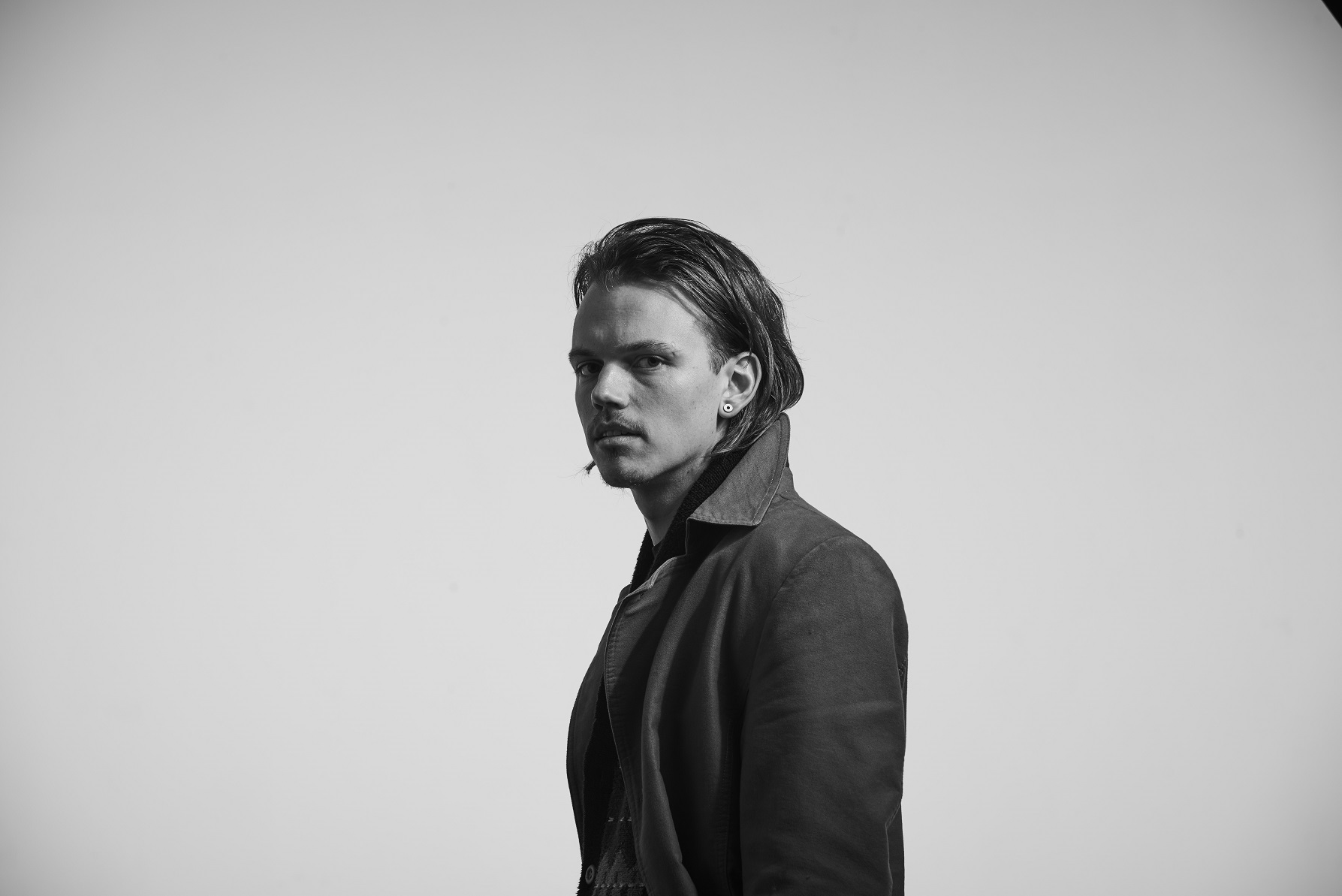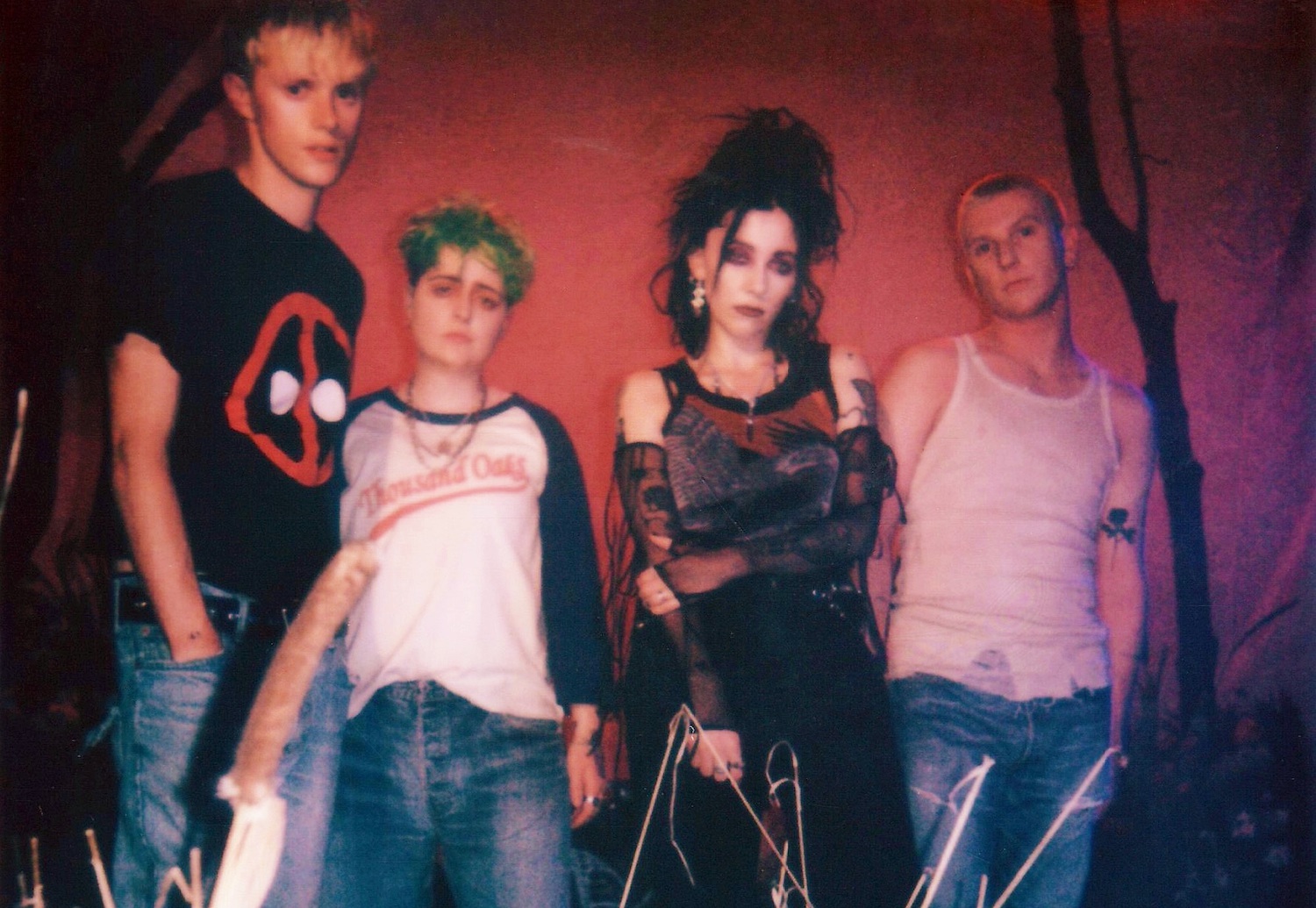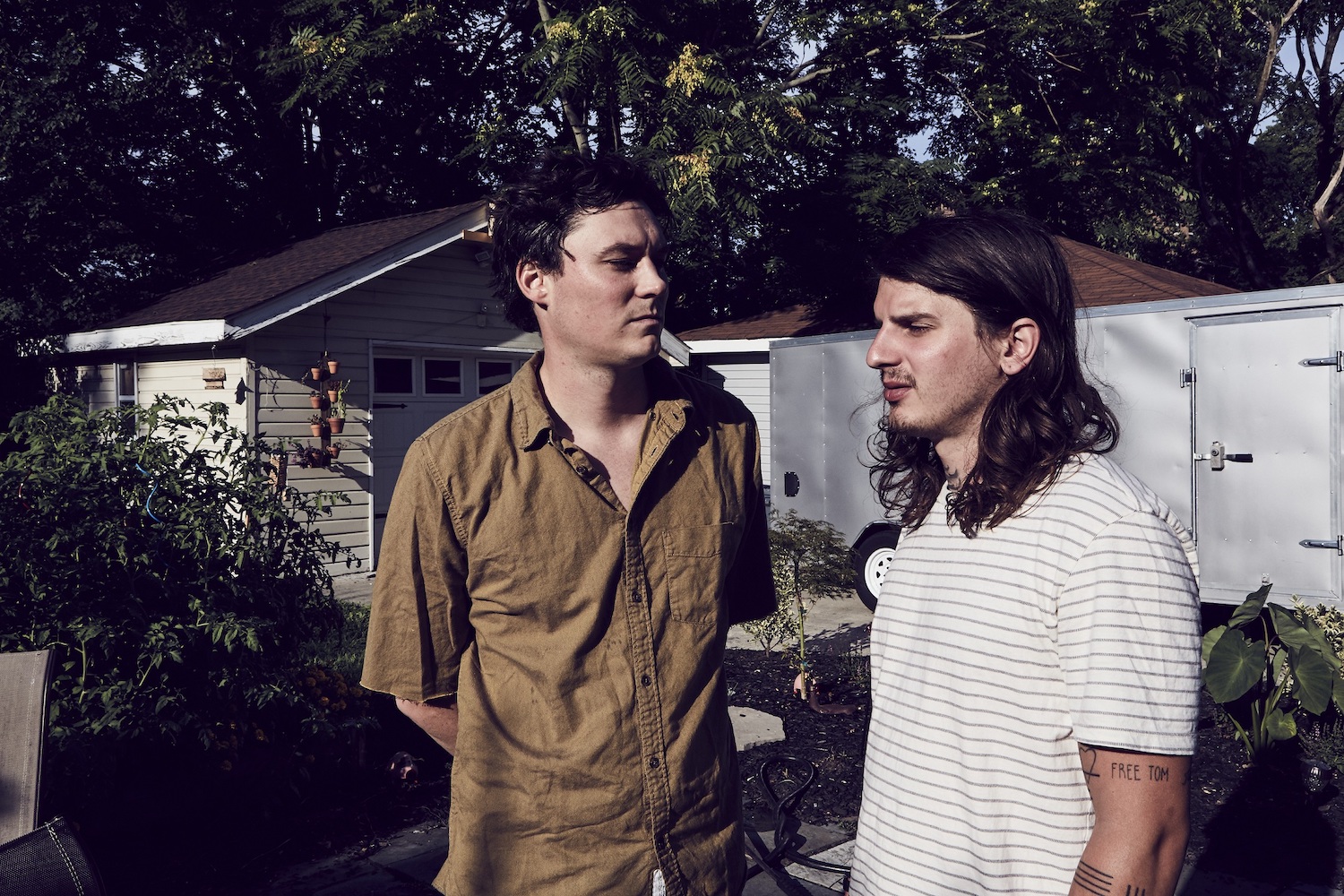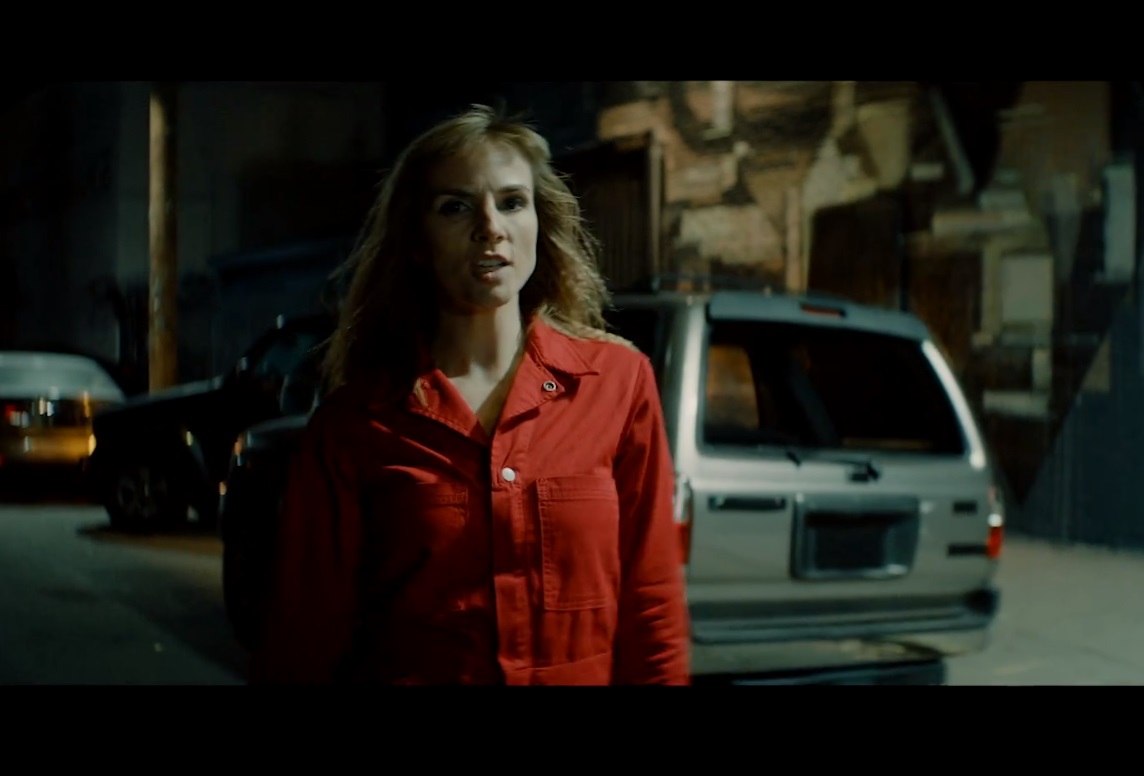Kele Okereke pieces together stories like a spider, skittering across multiple threads excitedly as he regales how Bloc Party’s latest record ‘Alpha Games’ came to be.
Stream: ‘Alpha Games’ – Bloc Party
I wanted to keep all of the ugliness in. I didn’t want sweet, happy endings, feel good moments. I wanted everything to have a sense of menace. And a sense of Jaws underneath your feet, like a shark just about to jump up and pull you into the water.
Kele Okereke is perhaps the most gentle indie rock frontman you will find today.
Piecing together each answer with equal parts nervousness and equal parts sincerity (and probably some fatigue thrown in), he threads together stories like a spider, skittering between the details of how the newest addition to the Bloc Party catalogue, Alpha Games, came to be: A trio of writing sessions, transatlantic flights and a great, long wait.
Each session, bassist Justin Harris would ferry from his hometown Portland, Oregon to the studio in England. In the aftermath, the band would review what worked and what didn’t. The album queued behind touring Silent Alarm’s 15th anniversary and companion live album and Okereke’s burgeoning solo career.
When the pandemic stopped the world, so too was Alpha Games put on hold.
Who could blame Okereke for feeling like the newest Bloc Part record might never see the light of day? Empowered to look forward by searching backwards, the band was committed to making a holistic Bloc Party record a reality after their nostalgia trip.
“When we did the Silent Alarm tour I had to listen to that record from start to finish. I haven’t really done that since it was made,” he says. “I think that kind of energy we felt when we were performing those songs went some way into informing where we went next.”
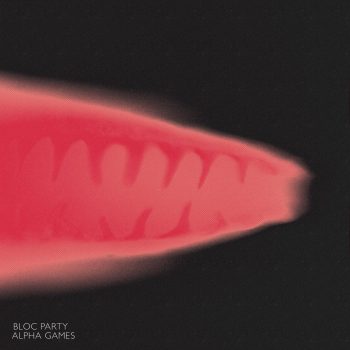
Recruiting Nick Launay (of Nick Cave and INXS fame) and Adam Greenspan to produce the album, Okereke and company attempted to evolve what a Bloc Party record could be. The result is something that attempts to straddle the twenty-year object of indie rock history that is Bloc Party. By Harris’ own admission, Alpha Games is “forward thinking, with a heavy nod to the energy of the past.”
While not new additions, Alpha Games is still the first record to feature Harris and Louise Bartle as Kele Okereke and Russell Lissack’s songwriting partners. Joining the angular, shoegazing tonality indelible to Lissack’s lead guitar, Harris and Bartle formed a taut rhythm section while touring Hymns, the immediate predecessor to Alpha Games.
Written chiefly by Okereke and Lissack, the 2016 album attempted to engage indie rock with multiple genres at once. What resulted was a somber, penitent record filled with the cavernous ambiance and gospel chorus. The traditionally pointed guitars had less post-punk edge and more blues swagger. Keys speared and splintered betwixt automaton percussion. Okereke’s more practiced and considered vocal maturity carried the day for highlights like “Only He Can Heal Me,” “So Real” and “Exes.”
Splitting critics down the middle, the album either heralded a brave new Bloc Party other further indicated their decline from the forefront of indie consciousness.
Okereke was adamant against putting any pressure on either Harris or Bartle. But since touring the material for both Hymns and The Silent Alarm, he found them prepared to help bring a new collaborative era to the fore.
— —
:: stream/purchase Alpha Games here ::

A CONVERSATION WITH BLOC PARTY

Atwood Magazine: What do you take to be the meaning behind the title of Alpha Games?
Kele Okereke: The title Alpha Games was actually something that my best friend was telling me about, a situation that he was having at work with one of his co workers, constantly berating him or trying to get one up on him to assert that he was more dominant in a professional, corporate environment. He used the term Alpha Games and I’ve never heard that term before.
It just seemed to completely make sense, for not only the record we were making, but how the world was. It felt like the three years that we’ve been making the record, we’ve gone through some very profound changes in the U.K. and in the U.S. as well. We seem to be very divided with that sentiment of us versus them, no middle ground. You have to win at all costs.
Do you do you think this oneupmanship related to like a sense of false empathy wherein the only way that someone can relate to another person's experience is by dragging their own experience into?
Kele Okereke: I think that’s human nature, isn’t it? It’s like watching a good film, or reading a book, you know? What really drives it home for you is if you can see part of yourself or how you would respond in a situation. And I think that I think that’s just the essence of art. We learn about others through ourselves.
How did it feel to write with Justin Harris and Louise Bartle as well as Russell Lissack again? Were there any obstacles?
Kele Okereke: I was adamant that we needed to put no pressure on on either of them. What was first and foremost was that they had to be into what it is they were doing. We kind of ironed out from the beginning that we’re a collaborative band. We were very lucky to have been touring Hymns, and Silent Alarm. We got a sense of their respective musicality, by the time we were writing songs together there was already a sense of what the essence of Bloc Party was. I’m glad that we had as much time to learn because if they just arrived cold, I don’t think it would have felt as well as it has done.
You've mentioned that your favorite experience is rebirth. How do you feel Alpha Games was a rebirth?
Kele Okereke: I’m not afraid of the idea of rebirth, I’m not afraid of the idea of going back and starting again. Ultimately, that’s what we’ve done with every record that we’ve made. Alpha Games felt like the reaction to where we left off. Making this record with two new members and it being new band chemistry didn’t really feel that daunting.
It was quite interesting in writing this record, seeing like the new things that we could do because of Justin’s and Louise’s capabilities. There was suddenly a precision in the drumming that really wasn’t there before. There was just a tautness and a cleanness that we’ve never really had in the bass before. I was constantly hearing new things in their playing that was inspiring to me.
•• ••
By the time we were writing songs together there was already a sense of what the essence of Bloc Party was. I’m glad that we had as much time to learn because if they just arrived cold, I don’t think it would have felt as well as it has done.
For three years, Alpha Games, sat on a shelf, periodically receiving attention as Bloc Party watched the world stagger from crisis to crisis.
In the meantime, Okereke worked on solo projects adamant that it not to touch the material intended for Alpha Games.
Moving away from the contemporary R&B and electrosoul splendor of 2042, Kele crossed an electroacoustic carrefour. One that resulted in the neo-classical “Nineveh” and its parent album The Waves Pt. 1. On these albums Okereke embraces a power in his voice he previously flirted with for Bloc Party albums past.
It’s on “SRXT,” before factious, indignant guitar parts take control and “The Healing” with its berth of fingerpicking and violin breaks. Hymns wrinkles this power into more daring territory with “So Real,” pairing his therapeutic lyricism with a hopping drum-and-bass and a warbling back-and-forth melody.
Gradually, however, ideas came to form. A cast of characters started to define themselves. A central axis bound the vignettes.
Not one to shy away from the present, Okereke’s lyrics mottled together a renewed focus on a “morally bankrupt time” of the sociopolitical landscape in the UK as told through character studies. Sharklike colleagues, dark underworlds and double lives all come into his purview. The title itself comes from a mention Themes orbiting a central axis in question form: “What happens to our humanity when we prioritize success?”
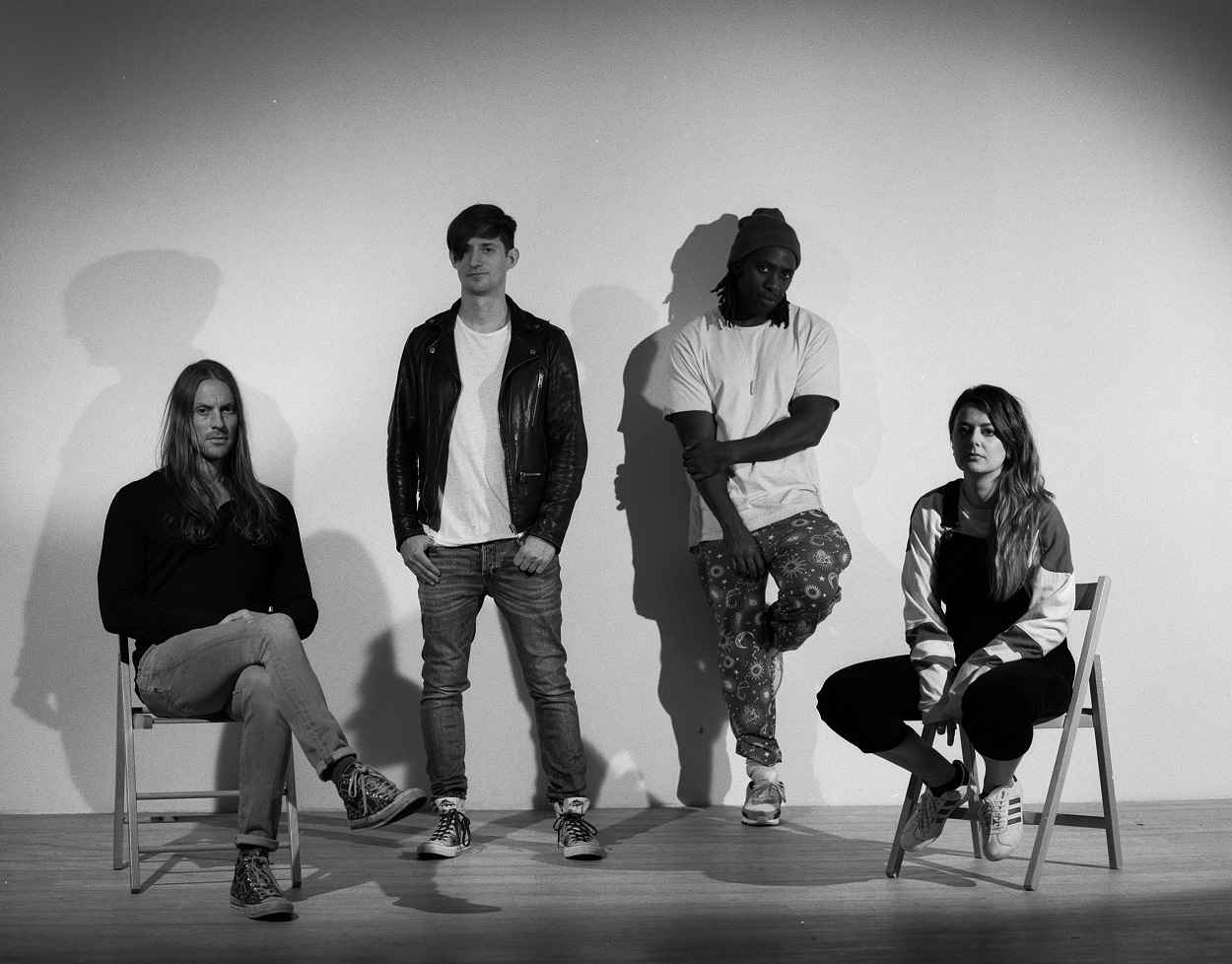
Like the last great The Who cut, “Eminence Front,” Alpha Games peels off the eminent front of of seedy, nouveau riche sleaze.
However, instead of an Entwistle laser-bass and Townsend synth-patterns regaling a Miami nightclub up to its eye balls in cocaine, the musical imagery of Alpha Games bespeaks the London underground.
Guitars that equally shoegaze, power chord, and pulsate. Siren-synths and wiry melodies abound as tells a tale of nouveau riche sleaze. With this musical emergency all around him, Okereke megaphones stories of the hyper competitive corporate world and its corrosive effects of oneupmanship and success-at-all-costs.
High-grade narcotics might be part of the equation, but they’re not the purpose of the function. The cutthroat collage of binge drinking, cryptocurrency and prisoner dilemmas just graphs the plot of a modern-day Patrick Bateman looking for blood in the water.
Unfortunately, his stilted, unwieldy lyricism glosses opaque on the verses, challenging listeners to uncover the nuance beneath these eminent fronts. The overriding sensation on record from “Day Drinker” to “In Situ” is a question: “Come again?”
Okereke’s words are easy enough to hear, and hard to make sense of – not without a lyric sheet, at least. And in this same hyper-fixated world Okereke depicts, audiences might be less forgiving: We want the gist in ten seconds or less, we like our entertainment close-captioned, and anything more is a Google search too far.
Ironically, the truly powerful moments happen when Okereke harnesses that practiced and considered vocal maturity.
While the gated, emo-induced vocals of the mid-2000s still form a veritable backbone of his style, his ability to emote and tease from his turn as a solo artist reach form on Alpha Games. Key moments turn heads and perk ears. It’s not just the stretched shouts of “Sex Magik” or the licorice pep for “You Should Know the Truth.” It’s how Okereke locks and flows on the pre-chorus “Of Things Yet to Come”; how he code-switches between the stone-skip verses and sailing chorus on “If We Get Caught;” and how he edges to a howl on “The Peace Offering.”
It these vocal performances that ultimately clue listeners into the themes of tight-roping over a pool of sharkskin acquaintances, listening to them as they bare teeth, gnash, abuse and cajole the proverbial “you” from yonder. Okereke succeeds in making truly repulsive yet intriguing characters that spellbind with their dissonant seduction, and terrifying in their unfortunate reality.
Atwood Magazine: The press release for Alpha Games describes themes of ugliness and dysfunctions. Where do you think that comes from? Is there a pleasure in dysfunction?
Kele Okereke: One thing that I was adamant about when writing lyrics was that I wanted to keep all of the ugliness in. I didn’t want sweet, happy endings, feel good moments. I wanted everything to have a sense of menace. And a sense of Jaws underneath your feet, like a shark just about to jump up and pull you into the water.
We released “Sex Magik” and everyone liked the energy of the song but I don’t think many people really noticed what I was singing about. It’s quite a sinister song about seduction, taking advantage of someone’s innocence. It’s about a trap that that hapless person is about to fall into.
I wanted people to feel uncomfortable. I wanted people to feel slightly creepy. And I don’t think people got that. I think people just thought it was just a fast energetic song. But to me, all of the songs on the record speak of things going on beneath the surface.
I definitely get that sense with “You Should Know The Truth.” It sounds positive, even if the lyrics aren't necessarily. I almost thought I had flipped over to a Third Eye Blind record for a half second. How do those cutting lyrics fit with the poppy musicality?
Kele Okereke: That’s the best way to do it. Many of my favorite artists like Pixies are so energetic and light. “Debaser” is this great up song but if you listen to what Francis Black’s singing about, it’s quite violent imagery, slicing up eyeballs. If you’re going to have that major key, upbeat pop moment, you have to try and balance it with some darkness. I don’t think that’s such an alien idea anymore, like hiding razor blades inside candy.
Like putting on sort of an “Eminence Front.” The lyrics about double lives in “Rough Justice” actually reminded me of “Eminence Front” by The Who. How did “Rough Justice” come together?
Kele Okereke: “Rough Justice” is one of the songs that we wrote in the first set. But it went through a variety of different changes. It had the longest journey. In terms of the lyrics, it was always kind of slightly weird because I didn’t really know where I was going, or what I was doing. I liked the imagery of super exclusive socialites actually engaging in kind of nefarious criminal activity. That’s such a sexy idea. But I could see the characters like a scene in Glamorama where we find out all the models are part of this international espionage gang.
Matte black ‘Rari
When we pull up, they’re sorry
Blacked-out windows strictly
For those who are in the know
Talkin’ real extra
Let me get you all the way together
Lookin’ super duper aeroplane fly
But now you’ve got a crush
We be the kind that ain’t got no scruples
We be the kind that break the law
Two-steppin’ all through this town
Maxin’ out your credit card
We tell them nothing, so they make shit up
I don’t need any new friends
We got the fury, we got the smarts
We’re waiting in the parking lot
You can’t hang with us
Do you think that it's harder or easier to live a double life today?
Kele Okereke: My understanding of how to live day to day is somewhat different because, as a touring musician, I’ve lived an extreme life in terms of traveling and being away from my family for months at a time. So I’m not surprised. Human beings are quite flexible and can adapt to any situation to keep a sense of flow in their lives.
The lyrics for “The Peace Offering” sound less like an offering of a peace and more like the rejecting of one. To whom or what this song is sort of addressed to?
Kele Okereke: It’s to a lot of people that I’ve met in my journey, as a musician over the years, people that have come into my life have gone and are no longer in my life. But it’s also about the idea of saying goodbye, knowing that everything will come to an end however caught up we are in our experience, in our moment.
I was filming my final scene the other day
When something really rather grave came over me
“Don’t take it so personal,” you used to say
“It’s only a game”
The first thing I lost was belief in the system
But in the end, the system always wins
I bet you wanna know what happens next, don’t you?
Patience
So if I’m being frank
I have no need for your scented candles
I don’t need your peace offering
I’d rather have the money you spend
If I’m being frank

•• ••
I’m not afraid of the idea of rebirth, I’m not afraid of the idea of going back and starting again. Ultimately, that’s what we’ve done with every record that we’ve made.
For Alpha Games, new variations would be key. The album plays in three tempos: frenetic mania, march-heavy mid-tempo and slow, sustained requiems.
The first comes evident on songs like “Day Drinker,” “Traps,” and “Callum Is A Snake” along with certain sections of “Rough Justice” and “By Any Means Necessary.” Fast and light and ready for fight or flight, “Traps” and “Day Drinker” flashback to the frenetic energy of The Silent Alarm.
The second is essential to enjoying the record; it’s everywhere from “You Should Know the Truth” onward, even filling in the other sections of “Rough Justice” and “By Any Means Necessary.”
The third variation is where this album excels. Empowering the band and Okereke’s voice alike to showcase a dynamism lost in the faster tempos elsewhere. “Of Things Yet to Come” and “The Peace Offering” stun with themes of cutting out toxic influences and moving past the idealized images of people.
For all this variation, however, not one cut off the Alpha Games track list functions well as an opener.
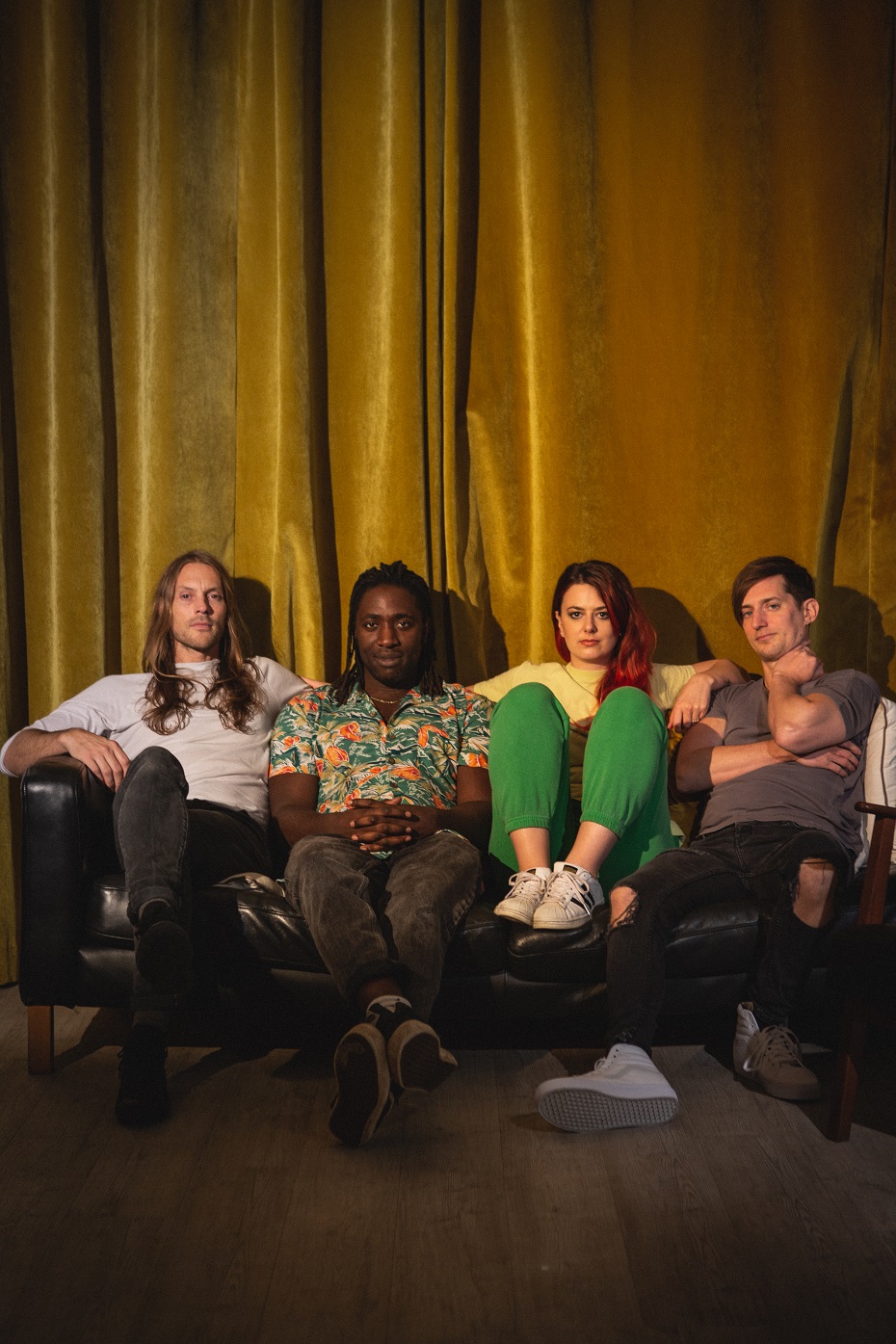
Instead, the band jump starts in media res with “Day Drinker,” a character study of substance abuse and other dirty secrets. The aural cold start of Okereke’s jilting storytelling and Bartle’s stuttering percussion only highlights the record’s choppy first-half.
Launay and Greenspan may make for impressive collaborators and provide the record with natural polish, but even they have a day of trying to make “Day Drinker” sound like a true opener. With punk, dance and electronic impulses all vying for pole position in the new era, the band and bets on a rushing impulsive garage-band opener to signal a more holistic return to form.
The lead single, “Traps,” only pushes further into this groove. With thrashing, clashing punk guitar parts and sing-song falsetto all made to coo and woo its subject into a scratchy “contact high,” the song bulldozes its way into “You Should Know the Truth,” the best track among the opening four and the coldest one-night stand dump possible.
Was it somethin’ that you felt? (Not certain of it)
Was it somethin’ that you meant? (Not wild about it)
Do you remember who you were before
I picked you up on West 44th?
You should know the truth,
you should know the truth..
I was only playin’ nice (‘Cause I wanted somethin’)
I was only listening (I was on the make)
Givin’ your light to nameless boys
Givin’ that light to anyone
The dance punk cut mixes together rollicking Pixies-lite riffwork and cruel lyrics into layers. A seesawing rhythm pitter-patters steps like means to an end before sailing off to a chorus of “oohs” and “oh-oh-ohs” like a kidnapped b-side from Third Eye Blind circa 1999.
After the comparatively tinny pop-punk of “Callum Is A Snake,” the band finally settles into a rhythm by “Rough Justice.” The drill alarm beat and escalating riff taking turns to share the sonic focus. Okereke’s imagined main character becomes even colder, stealing and disposing of their evening companion.
From there, the album segues into the anthemic rock n’ brawl song, “The Girls Are Fighting,” before stopping the show for “Of Things Yet To Come,” delving into some synthrock for the first-time jitters on “Sex Magik” and then launching into a no-holds barred “By Any Means Necessary.” Beyond the blip of “In Situ,” this album finishes strong.
Launay and Greenspan do find some balance between the glam, the punk, and the rave, but ultimately have no imprint on the cuts besides polish — the anti-Danger Mouse practice. Little moments of production bliss like Lissack’s backup vocals from “If We Get Caught” or a phased banshee scream from “The Girls Are Fighting” become so rare to find that it’s surprising when they do happen.
The mixed-bag of recordings that forms Alpha Games ends up stronger than Hymns, but not their strongest. Bloc Party’s latest is backfilled with deep cut highlights and powerful lyricism, but it’s shaky finding its way to them.
— —
:: stream/purchase Alpha Games here ::
— — — —

Connect to Bloc Party on
Facebook, Twitter, Instagram
Discover new music on Atwood Magazine
? © Wunmi Onibudo
:: Stream Bloc Party ::



